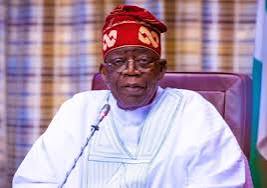The Federal Government of Nigeria has called on labour unions to persist in their negotiations with both federal and state governments.
This appeal comes amid discussions over a new, realistic minimum wage for Nigerian workers.
The government’s plea was conveyed through the established tripartite committee, tasked with formulating the new minimum wage.
Minister of Information and National Orientation, Mohammed Idris, emphasized the government’s commitment to achieving a peaceful resolution during a press briefing on Monday in Abuja.
“As a government, we are desirous of a peaceful outcome, and we will do everything to make this happen,” Idris stated.
He highlighted recent engagements with union leaders, noting the proactive approach taken by the National Assembly and the government to facilitate ongoing discussions.
“Yesterday, the leadership of the National Assembly met with the Unions. Today, we have offered another invitation to the Unions, to meet with us and continue our discussions,” he added.
Idris stressed the government’s willingness to remain engaged, underscoring that they see themselves not as opponents, but as partners united in the goal of improving the welfare of all Nigerians.
“We are united by the fact that we want the best for the Federal Republic of Nigeria and for all 200 million citizens of the country,” he declared.
The government reiterated its responsibility to balance demands with practicality, emphasizing that the new minimum wage would apply to both public and private sectors.
“The minimum wage is not only for public sector workers. It will be binding on the private sector as well. This reality must be factored into the negotiations,” Idris noted.
Addressing Labour’s current proposal of N494,000, Idris highlighted the economic implications of such an increase.
“Labour’s current proposal of N494,000 is an increase of 1,547 percent on the existing wage, and translates into an annual wage bill of 9.5 trillion Naira for the Federal Government of Nigeria alone,” he explained.
The government warned that this substantial wage bill could have severe economic repercussions, including massive job losses, particularly in the private sector. “Such a wage bill would cripple the Nigerian economy,” Idris cautioned.
To mitigate economic strain and provide relief to Nigerians, the government pointed to initiatives like the National Consumer Credit Scheme and the Nigerian Education Loan Fund (NELFUND).
These efforts aim to reduce the cost of living and ensure more money remains in the pockets of Nigerians.
“The relief that Nigerians are expecting, and that they fully deserve, will not come only in the form of increased wages. It will also come as efforts to reduce the cost of living,” Idris asserted.
President Bola Tinubu reaffirmed his commitment to a fair and sustainable outcome in the minimum wage negotiations.
“President Bola Tinubu is firmly committed to doing what is right, reasonable, and sustainable regarding these minimum wage negotiations.
We call on the Labour Unions to reciprocate this gesture in the interest of the nation,” Idris said.
Do you want to share a story with us? Do you want to advertise with us? Do you need publicity for a product, service, or event? Contact us on WhatsApp +2348183319097 Email: platformtimes@gmail.com
We are committed to impactful investigative journalism for human interest and social justice. Your donation will help us tell more stories. Kindly donate any amount HERE




